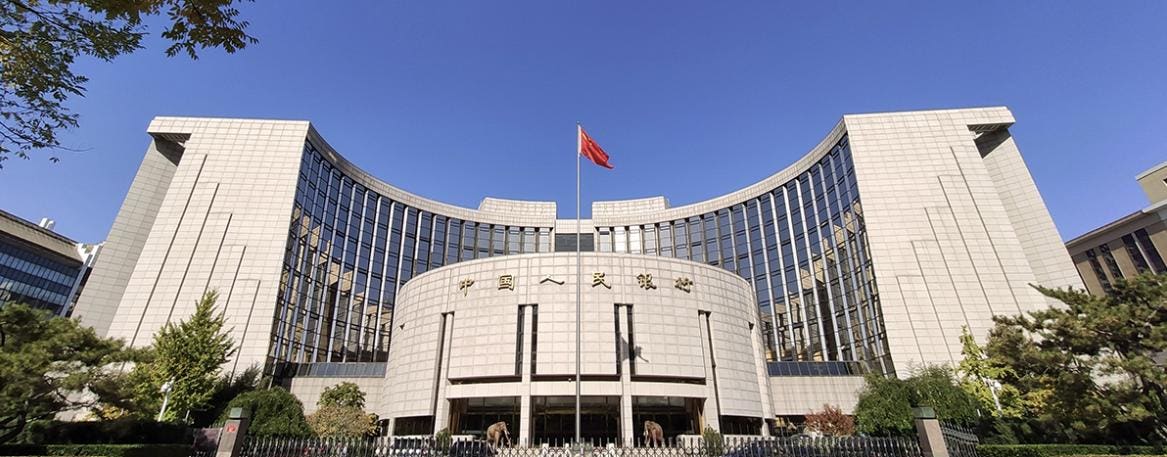Key News
Asian equities were largely higher overnight on light volumes as traders kept their powder dry in advance of a busy week. The US Fed, the European Central Bank (ECB), the People’s Bank of China (PBOC), and the Bank of Japan (BOJ) will announce interest rate decisions this week along with significant economic data releases.
FTSE and S&P indexes will rebalance on Friday, which is also “Quad Witching” in the US (stock and index futures and options expiration).
Thursday morning China time, i.e., Wednesday night Eastern, is China’s big day as the PBOC is expected to cut the medium-term lending rate. Meanwhile, the big six banks implemented their deposit interest rate cuts today. May data on industrial production, retail sales, and Fixed Asset Investment will also be released on Wednesday.
ADVERTISEMENT
JD.com has not provided further guidance on their 618 sales festival, though a Mainland media source reported that smaller merchants had been disappointed with sales. China’s recovery is occurring, though at a slower-than-expected pace, while export-driven manufacturing is facing the headwind of slowing global demand. Real estate is also experiencing a tepid recovery. These factors raise hopes that policymakers will step on the stimulus gas pedal to support domestic consumption.
Hong Kong staged a late-afternoon rally, led by the most heavily traded stocks by value, including Tencent, which gained +0.71%, Meituan, which gained +0.39%, Alibaba, which gained +0.12%, BYD, which gained +1.76%, and Xpeng, which gained +11.14% after announcing its new G6 model has received 25,000 pre-orders.
The electric vehicle ecosystem is clearly an industry receiving policy support. NIO gained +4.74% after announcing a price cut, though Li Auto fell -1.6% on no news.
One factor helping to fuel the late-day rally was Mainland investors buying Hong Kong stocks via Southbound Stock Connect for a strong $582 million worth of net buying. Main Board short turnover was elevated at 20% of total turnover, as Hong Kong-listed ETFs saw very high short turnover.
ADVERTISEMENT
Mirroring Hong Kong, Mainland China bounced around the room though rallied into the close, led by large-cap autos, though CATL fell -0.04% and BYD gained +0.97%, household appliances manufacturers Midea and Gree gained +2.21% and +2.50%, respectively, and liquor stocks Kweichow Moutai and Wuliangye Yibin gained +1.8% and +3.54%, respectively. Foreign investors sold a net -$410 million worth of Mainland stocks as CNY was off versus the US dollar and Treasury bonds rallied.
There has been little follow-through so far on the announcement that US Secretary of State Antony Blinken will visit China this month, though such a trip could pave the way for a Biden-Xi summit later this year. The US sanctioned two more Chinese companies, though, as our trader friend Dave likes to say: “Markets no care, you no care.”
The Hang Seng and Hang Seng Tech indexes delivered a “James Bond” gain of +0.07% and a slightly higher gain of +0.27%, respectively, on volume that fell -7.34% from Friday, which is 68% of the 1-year average. 155 stocks advanced, while 320 declined. Main Board short sale turnover increased +19% from Friday, which is 81% of the 1-year average, as 20% of turnover was short turnover. Growth and value factors were mixed as small caps outperformed large caps. The top-performing sectors were communication services, which gained +0.55%, technology, which gained +0.49%, and consumer discretionary, which gained +0.45%. Meanwhile, healthcare fell -1.49%, utilities fell -0.82%, and energy fell -0.81%. The top-performing subsectors were semiconductors, autos, and food and beverages. Meanwhile, healthcare equipment, pharmaceuticals, and energy were among the worst-performing. Southbound Stock Connect volumes were light as Mainland investors bought a net $582 million worth of Mainland stocks as Tencent was a light/moderate sell, Kuiashou was a small net sell, and Meituan was a small net buy.
ADVERTISEMENT
Shanghai, Shenzhen, and the STAR Board diverged to close -0.08%, +0.73%, and -0.57%, respectively, on volume that decreased -2.14% from Friday, which is 105% of the 1-year average. 2,916 stocks advanced, while 1,758 declined. Growth factors outperformed value factors, as small caps outperformed large caps. The top-performing sectors were consumer staples, which gained +2.05%, consumer discretionary, which gained +2.04%, and technology, which gained +0.47%. Meanwhile, utilities fell -2.43%, financials fell -1.17%, and communication services fell -0.67%. The top-performing subsectors were auto parts, education, and household products. Meanwhile, telecom, power, and precious metals were among the worst-performing. Northbound Stock Connect volumes were light/moderate as foreign investors sold a net -$410 million worth of mainland stocks as Kweichow Moutai was a small net sell, and Foxconn and China Tourism Duty Free Group were both very small net buys. CNY and the Asia Dollar Index fell versus the US dollar, while Treasury bonds rallied. Copper and steel diverged to close by +0.33% and -0.51%, respectively.
Last Night’s Performance
ADVERTISEMENT
ADVERTISEMENT
Last Night’s Exchange Rates, Prices, & Yields
- CNY per USD 7.15 versus 7.13 Friday
- CNY per EUR 7.69 versus 7.66 Friday
- Yield on 1-Day Government Bond 1.35% versus 1.34% Friday
- Yield on 10-Year Government Bond 2.67% versus 2.67% Friday
- Yield on 10-Year China Development Bank Bond 2.82% versus 2.82% Friday
- Copper Price +0.33% overnight
- Steel Price -0.51% overnight
Read the full article here


